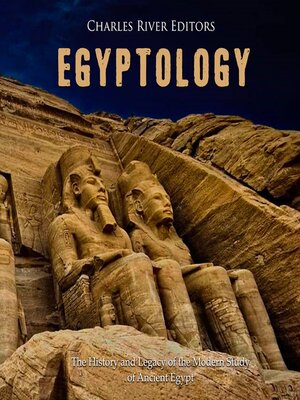Egyptology
audiobook (Unabridged) ∣ The History and Legacy of the Modern Study of Ancient Egypt
By Charles River Editors

Sign up to save your library
With an OverDrive account, you can save your favorite libraries for at-a-glance information about availability. Find out more about OverDrive accounts.
Find this title in Libby, the library reading app by OverDrive.



Search for a digital library with this title
Title found at these libraries:
| Library Name | Distance |
|---|---|
| Loading... |
Africa may have given rise to the first human beings, and Egypt probably gave rise to the first great civilizations, which continue to fascinate modern societies across the globe nearly 5,000 years later. From the Library and Lighthouse of Alexandria to the Great Pyramid at Giza, the Ancient Egyptians produced several wonders of the world, revolutionized architecture and construction, created some of the world's first systems of mathematics and medicine, and established language and art that spread across the known world. With world-famous leaders like King Tut and Cleopatra, it's no wonder that today's world has so many Egyptologists.
Though he couldn't have known it, the various scholars and scientists Napoleon brought to Egypt kicked off modern Egyptology, and a general fascination across the West. Until about 200 years ago the writing of the ancient Egyptians was an enigma to the world, but that changed when an ancient Egyptian monument known today as the Rosetta Stone was discovered (or rediscovered serendipitously) by French soldiers in Egypt in 1799. Now one of the most famous monuments in the world, the Rosetta Stone is a black granite stele that was inscribed with texts in Greek and two different scripts of the ancient Egyptian language: demotic and hieroglyphs. The discovery of the Rosetta Stone finally provided researchers with a way of reading the Egyptian language based on an understanding of the Greek translation.
As more individuals headed for Egypt and made more groundbreaking discoveries, the interest in Egypt heightened, as did knowledge about ancient history, despite the fact it happened so long ago and covered an immense span of time. Thanks to all these efforts, modern Egyptologists are able to learn an incredible amount about different periods through reading the surviving texts currently preserved in museums throughout the world.







